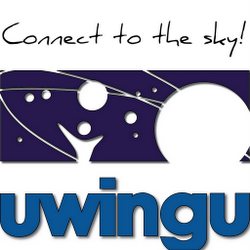 Last week, I wrote about the Uwingu "People's Choice" contest that invites people to vote on a popular name for the nearest known exoplanet. Today, I have two updates:
Last week, I wrote about the Uwingu "People's Choice" contest that invites people to vote on a popular name for the nearest known exoplanet. Today, I have two updates:
1) Uwingu has extended the contest by one week, and the winning name now won't be decided until Monday, April 22, at midnight EDT. You can continue to vote at www.uwingu.com.
2) In response to Uwingu's efforts, which ultimately raise money for space education and research, the International Astronomical Union (IAU) issued a press release calling such contests “schemes” and stating that “it dissociates itself entirely from the commercial practice of selling names of planets, stars or even ‘real estate’ on other planets or moons.” The organization called itself the “single arbiter of the naming process.” Today, Uwingu issued a response:
Uwingu affirms the IAU’s right to create naming systems for astronomers. But we know that the IAU has no purview — informal or official — to control popular naming of bodies in the sky or features on them, just as geographers have no purview to control people’s naming of features along hiking trails. People clearly enjoy connecting to the sky and having an input to common-use naming. We will continue to stand up for the public’s rights in this regard, and look forward to raising more grant funds for space researchers and educators this way.
We now take this opportunity to note to the public that, contrary to the IAU press release:
-
- Informal names for astronomical objects are common (e.g., “The Milky Way”). And in fact, there is no such thing as a unified astronomical naming system, and there never has been. Claims to the contrary are simply incorrect, as an astronomical database search on a representative star, Polaris, reveals. This star is also known to astronomers and the public as the North Star, Alpha Ursae Minoris, HD 8890, HIP 11767, SAO 308, ADS 1477, FK5 907, and over a dozen more designations.
-
- There are many instances where astronomers name things without going through the IAU’s internal process. There are many features on Mars, ranging from mountains to individual rocks, with names applied by Mars-mission scientists and never adopted by, or even considered by, the IAU. And Apollo astronauts did not seek IAU permission before naming features at their landing sites or from orbit.
-
- Uwingu looks forward to continuing to help the general public to engage creatively in astronomy and to participate in the excitement of the exploration of the universe in which we all live.
In our Alpha Centauri People’s Choice naming contest, anyone can nominate a name to honor a friend, colleague, loved one, or to recognize a place name, an author, an artist, or a sports team, for example. The name getting the highest number of votes will be declared the public’s choice for Uwingu to use as the name for this mysterious new world. Never before has the public been asked to choose its favorite name for a planet.
Name nominations are $4.99; votes cost $0.99. Proceeds from naming and voting fuel new Uwingu grants to fund space education projects affected by sequestration cuts to NASA.
So, yes, the IAU is right in that the designation can't become “official.” But then again, the North America Nebula isn't the official designation for NGC 700, nor is the Horsehead Nebula the official designation for Barnard 33. Yet the public still uses such monikers. And to infer that the Uwingu contest is in the same category as various star registry companies is a little excessive. You don’t “buy” a planet name; you buy a vote, and the money goes toward a good cause.
I say keep voting if you understand the parameters of the contest and what “winning” really means. No one gets hurt by spending a little money to help space funding. And who knows, the name just might catch on.